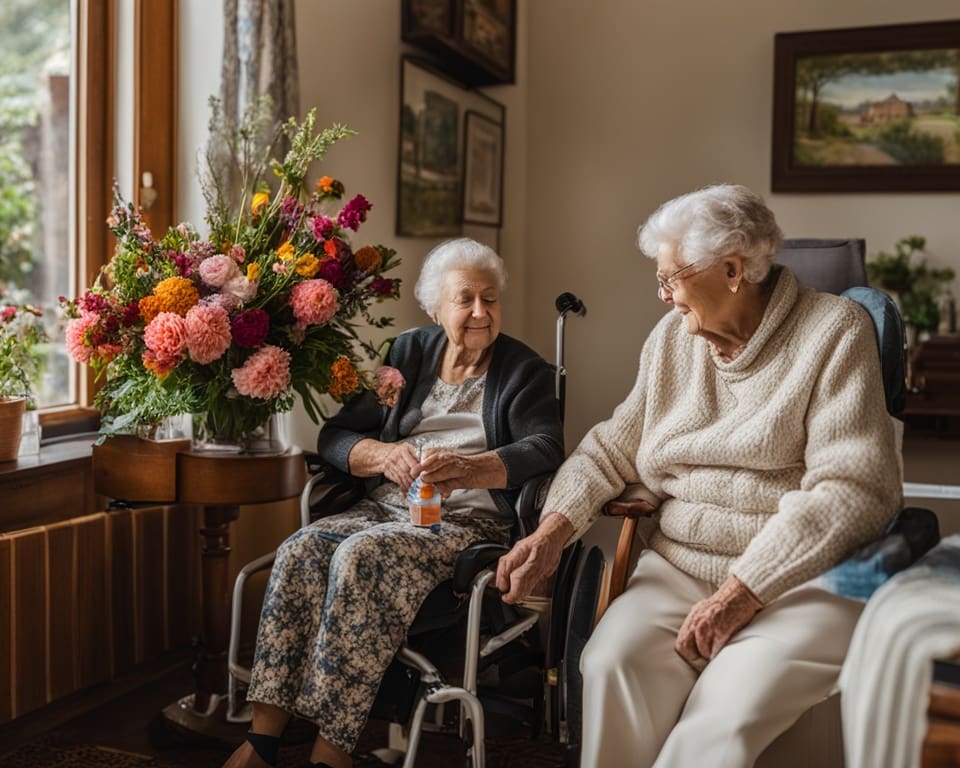Caring for the elderly is a responsibility that requires compassion, understanding, and a specialized approach. Geriatrics 101 highlights the importance of dedicated care tailored to the unique needs of aging adults. As we navigate the complexities of senior healthcare essentials, it becomes clear that geriatrics is not just a branch of medicine, but a vital resource for promoting health, preventing illness, and enhancing the quality of life for seniors.
Geriatricians play a crucial role in this specialized field, addressing health challenges specific to older adults. Understanding geriatrics not only aids healthcare providers but also empowers families with the knowledge necessary for optimal elder wellness resources. By appreciating the distinct requirements of the elderly population, caregivers can foster improved health outcomes, ensuring that our loved ones thrive in their golden years.
Understanding Geriatrics and Its Importance
As our population ages, understanding geriatrics becomes increasingly important. This medical specialty, focused on the health of older adults, addresses the unique challenges that come with aging. Professionals in this field play a crucial role in elderly health management, ensuring that seniors receive the individualized care they need.
What is Geriatrics?
Geriatrics is the branch of medicine that specializes in diagnosing, treating, and preventing diseases and disabilities in older adults. It encompasses a wide array of health issues that specifically affect aging individuals. By prioritizing elderly health management, geriatricians offer tailored approaches that enhance the quality of life for seniors, focusing on both physical and mental well-being.
The Role of Geriatricians in Elderly Care
Geriatricians serve as experts in caring for seniors, equipped with the knowledge to address complex medical conditions that often arise with age. They conduct comprehensive assessments, oversee treatment plans, and coordinate geriatric care services to provide holistic support. These specialized doctors work collaboratively with families and caregivers to ensure that each senior’s needs are met effectively.
Difference Between Geriatrics and General Medicine
The distinction between geriatrics and general medicine is significant. While general practitioners may address a broad spectrum of health issues, geriatricians focus deeply on the aging process. They understand the multifaceted nature of elderly health management, which often involves managing multiple chronic conditions simultaneously. This specialization not only addresses the unique medical needs of seniors but also fosters a comprehensive approach to caring for seniors.

Caring for the Elderly: Geriatrics 101
Understanding the principles of elder care forms the foundation for providing effective support to aging adults. When caregivers approach elderly care with respect and sensitivity, they create an environment where dignity and independence thrive. Implementing practical daily care strategies benefits not only the seniors but also their families and caregivers.
Key Principles of Elder Care
At the core of effective elderly care are principles that emphasize the value of each individual. Key tenets include:
- Respect for dignity: Maintaining the unique identity of each elderly person is vital in fostering trust.
- Promoting independence: Encouraging self-sufficiency empowers seniors to take control of their daily lives.
- Comprehensive support: Addressing physical, emotional, and social needs ensures holistic care.
Effective Communication with Aging Adults
Communication plays a crucial role in elderly care. Utilizing clear, simple language while being patient and empathetic fosters a trusting environment. Actively listening enhances understanding, allowing caregivers to respond more effectively to the needs of seniors. This respectful dialogue is essential for successful aging adults support.
Recognizing Common Health Issues in Seniors
Being vigilant about common health concerns enables caregivers to provide timely assistance. Knowledge of issues such as:
- Cognitive decline
- Chronic pain
- Mobility problems
Encourages caregivers to seek necessary medical advice. Awareness of these challenges can significantly improve health outcomes. With access to eldercare assistance programs, families are better equipped to navigate these complexities.
Essential Elderly Care Tips for Family Caregivers
Caring for the elderly requires thoughtful attention and dedication. Family caregivers play a critical role in ensuring their loved ones experience a high quality of life. Implementing effective strategies can make a significant difference in both the elder’s well-being and the caregiver’s peace of mind.
Creating a Safe Living Environment
Safety is a paramount concern when caring for the elderly. A well-prepared living space can greatly diminish potential hazards. Consider the following family caregiver tips for creating a safer environment:
- Remove tripping hazards such as loose rugs and clutter.
- Install grab bars in bathrooms and near staircases to assist with mobility.
- Ensure adequate lighting throughout the home to improve visibility and avoid accidents.
These elder wellness resources are essential for promoting independence and safety, ultimately enhancing the quality of life for aging family members.
Practical Daily Care Strategies
Daily routines can nurture both physical and emotional health. Establishing a consistent schedule aids in promoting wellness and comfort. Family caregivers can implement these strategies:
- Encourage social interactions, whether through family gatherings or community groups.
- Support healthy nutrition by planning balanced meals and allowing the elderly to participate in meal preparations.
- Incorporate gentle exercise into their routine to maintain mobility and strength.
These senior healthcare essentials contribute to overall well-being and emphasize the importance of mutual support between caregivers and their elderly loved ones.
Accessing Geriatric Care Services and Support
When it comes to ensuring the health and well-being of seniors, accessing geriatric care services is essential. Various options are available, each designed to cater to the unique needs of elderly individuals. From geriatric assessments that help identify specific health challenges to home health aides who can provide personalized assistance, having access to these services significantly enhances elderly health support for families and caregivers.
Adult day care centers represent another valuable resource in the realm of senior healthcare options. These programs offer structured activities and social interactions that promote mental and physical well-being while providing respite for family caregivers. Additionally, community programs tailored for seniors can link families to local resources and support networks, making it easier to navigate the complexities of eldercare assistance programs.
Advocating for proper healthcare and regularly accessing these services is crucial in monitoring and supporting the overall health of aging individuals. Families are encouraged to explore their local options diligently, as the right geriatric care services can lead to substantial improvements in quality of life, not only for seniors but also for those who care for them. Embracing these resources cultivates a more supportive environment for our cherished elderly loved ones.









